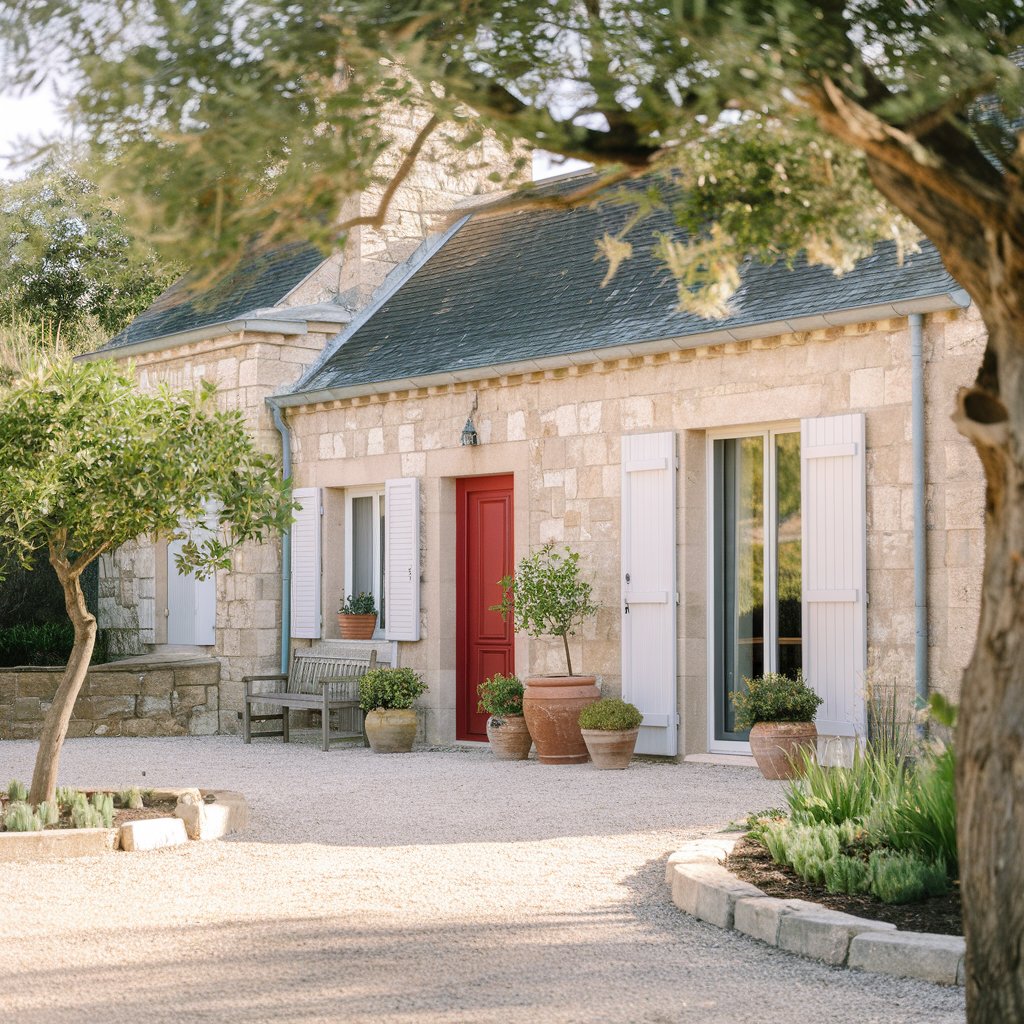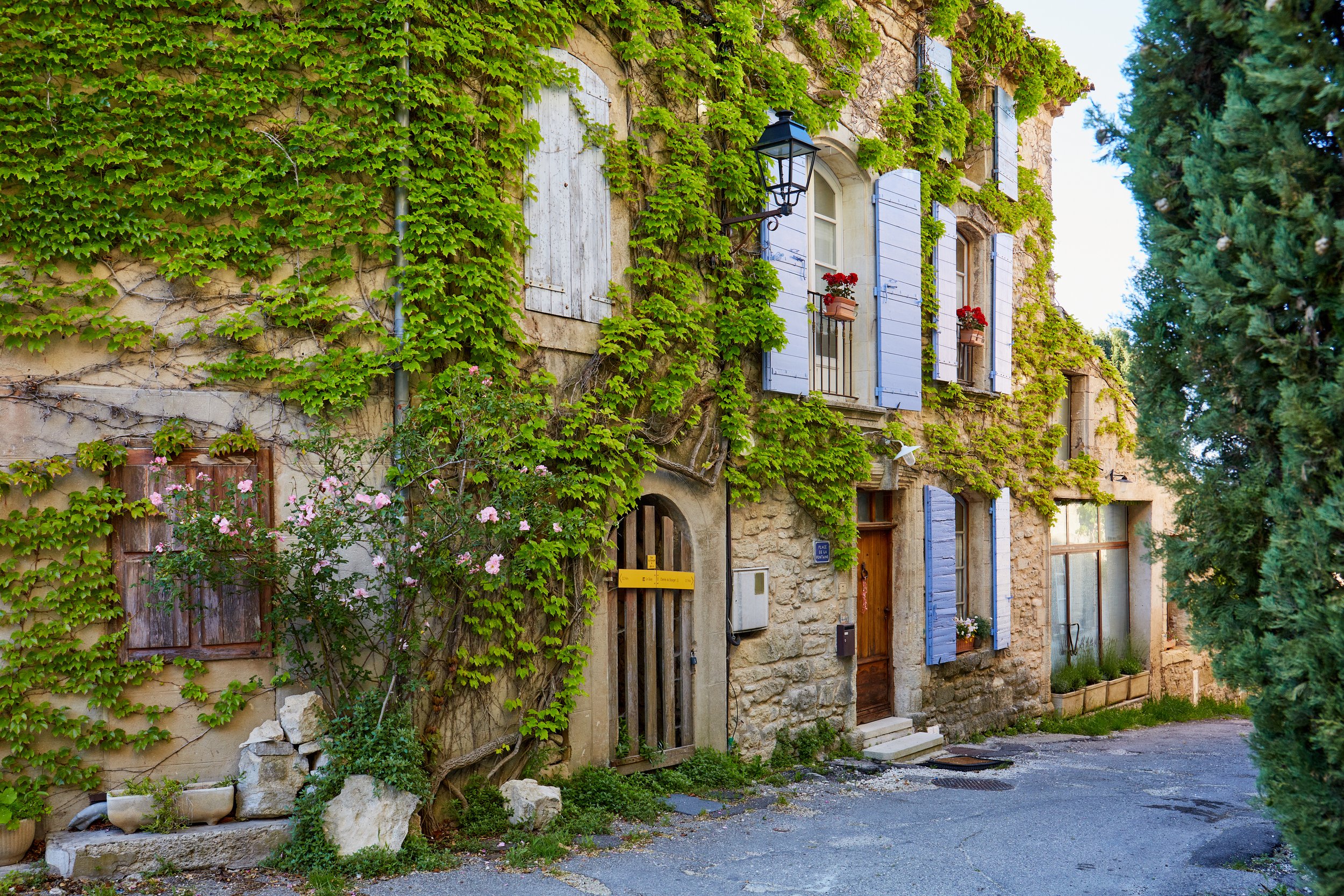
Bonjour, let's make co-owning your dream home in Europe splendido.
If your heart yearns for a home in France or Italy, a land of profound history and sun-kissed charm, where you can lose yourself in the culture, feast on divine cuisine & embrace the soul-soothing, slower pace of life - then you are in the right place. Our name is our commitment: we want to provide you with the joy that comes through co-ownership of a Joie de Vivre Home.
Co-owning a European Home
Imagine having a home base in your favorite place in France or Italy—a personal retreat where you can slow down and immerse yourself in local culture, fine cuisine, and the rhythms of everyday life. Co-ownership makes this lifestyle possible, offering the joy of sun-filled mornings, local markets, historic villages, and meaningful time with friends and family.
With co-ownership, you’re investing not just in a home, but in experiences and memories. Our team handles the complexities of ownership, so you can focus on enjoying life. Each owner enjoys private use for several weeks per year through a fair, rotating schedule tailored to the seasons, with full details outlined in your ownership agreement.
Sharing the costs
Co-owning a home offers access to a property that might otherwise be beyond your budget. By joining forces with others for an all-cash purchase, you significantly increase your buying power. Additionally, you benefit from shared maintenance costs and responsibilities, making the overall investment more manageable
Explore the possibilities
Current properties under consideration span a range of locations—from an elegant urban apartment in Nice, to village homes and countryside residences near Lake Como and in the South of France. Each is thoughtfully selected for its proximity to shops, transportation, and everyday services—never remote or isolated. Our aim is to offer a varied collection to suit different holiday lifestyles. Do you envision your ideal home in a vibrant city, a charming village, or the countryside with easy access to daily life?







FAQs
-
No, co-ownership or fractional ownership is different from a timeshare. With co-ownership, you own a percentage of the property, which means you can sell, donate, or transfer your share. You also benefit from any appreciation in the property's value and may be eligible for tax advantages. Typically, you have private use of your home for 4 or more weeks per year.
In contrast, with a timeshare, you do not own the property. Instead, you have the right to stay at a specific location, usually a resort or hotel, for a fixed week or two each year. The property is owned by the resort or hotel chain, not by you.
-
Many people dream of owning a vacation property but find it financially out of reach or impractical given how rarely they would use it. Co-ownership or fractional ownership offers an ideal solution by allowing you to own a share of a premium vacation home at a fraction of the cost. This approach not only reduces the initial investment and ongoing expenses but also spreads the risks of unexpected maintenance issues and potential depreciation among multiple owners.
-
A U.S. Limited Partnership or Limited Liability Company (LLC) structure keeps share sales and ownership rights within the United States. The LLC then creates the French or Italian legal entity that owns the home. This multi-entity ownership arrangement allows co-owners to bypass the restrictive tax and inheritance laws that would apply if the property were purchased outright. By utilizing an LLC, co-owners are governed by U.S. tax and inheritance laws.
This LLC structure also provides shareholders with maximum flexibility when selling their shares. Instead of navigating complex title issues in Italy or France, Joie de Vivre Homes can facilitate the sale of a co-owner's share(s) in the LLC as a straightforward U.S. transaction. -
The Operating Agreement, signed by all shareholders, outlines the rights, obligations, and responsibilities associated with their LLC. It defines the LLC's assets and liabilities, including an initial estimate of monthly operating and maintenance fees, which, after the first year, are adjusted based on actual costs. The Agreement typically covers key areas such as:
Definitions and Formation: Establishes the foundational terms and the creation of the LLC.
Members and Membership Interests (Shares): Details the ownership structure and the distribution of shares.
Management: Specifies how the LLC will be managed, including decision-making processes.
Budgets and Accounts: Outlines financial planning, including budget creation and account management.
Meetings: Sets the guidelines for shareholder meetings.
Member Use Rights & Scheduling Formulas: Defines how members can use the property and the scheduling of their usage.
Accounting and Records: Establishes requirements for financial record-keeping and transparency.
Transfer of Interest Rights & Restrictions: Details the rules for transferring ownership shares.
Distributions: Covers the distribution of profits, capital gains or other assets to members.
Withdrawal and Dissolution: Specifies the process for inheritance, a member’s withdrawal or the dissolution of the LLC.
Indemnification: Protects members and managers from certain legal liabilities.
Amendments: Outlines how the Operating Agreement can be modified.
This comprehensive agreement ensures that all aspects of the LLC's operation are clearly defined and agreed upon by all shareholders.
-
Annual or monthly property fees cover homeowners’ insurance, property taxes, internet and cable, utilities, bookkeeping, cleaning, and a contingency fund or reserve for maintenance. These costs are initially estimated in the LLC contract for the first year in euros per share, depending on the specific property features such as the house size, and whether it has a garden, or a pool.
Occasionally, capital improvements to the property are necessary. One of the key advantages of fractional ownership is that all property costs are shared among the LLC shareholders, significantly reducing the individual financial burden.
A local management firm will handle property maintenance, preparing the home for each shareholder's arrival and cleaning it after their departure. All service charges, including tax reporting and financial record-keeping, along with any replacement costs and expenses are passed through to shareholders as part of their monthly maintenance fees. This ensures a seamless and worry-free experience for all co-owners.
-
The contract outlines an equitable process for scheduling home use among shareholders. The scheduling formula is tailored to the location of the home to maximize fairness and enjoyment. In the South of France, for instance, there is a peak summer season, a "shoulder" season in spring and fall (thanks to the region's typical 300 days of sunshine), and a winter "off" season.
Scheduling begins with an NFL-style draft, starting with a public lottery among shareholders. In the first round, shareholders select up to three weeks during the peak season, followed by selections for the shoulder and off seasons. This rolling system ensures that all shareholders have equal opportunities to choose their preferred dates over the years. Once the annual schedule is set, shareholders can easily communicate with one another to swap dates if unexpected circumstances arise.
Our attorney, Andy Sirkin of Sirkin-Law, is an expert in designing scheduling formulas for fractional homeowners and will outline our bespoke system in the ownership contract. This approach ensures that all shareholders enjoy the most equitable and tailored scheduling for their home and its unique regional characteristics.
-
The contract will clearly define your rights regarding the use of your assigned private time. You are welcome to allow family and friends to enjoy your scheduled time, or you can exchange those dates with other shareholders at other homes. Additionally, there are several online platforms that facilitate home exchanges, whether through reciprocal arrangements or guest point exchanges. Notable platforms include HomeExchange and ThirdHome. These barter system platforms require more controlled negotiation between you and the person(s) using your time in your home, as opposed to renting your time through commercial rental platforms like VRBO or Airbnb.
The contract prohibits commercial rentals of your time allocation for several important reasons. Primarily, it avoids creating a foreign revenue stream, which we want to prevent, and it also maintains control over who uses the home. The exchange option offers you maximum flexibility to either enjoy your private time in your home or allows you to barter for holiday homes around the globe—unlocking a world of travel possibilities.
-
The contract outlines the process for selling your share of a co-owned home and how ownership is transferred in the event of death or divorce. While you cannot sell your share within the first 12 months of ownership, after this period, Joie de Vivre Homes can facilitate the sale of your share at an agreed-upon market value. Your share can also be inherited by a single entity, such as a trust, when there are multiple beneficiaries. Additionally, existing shareholders have the first right to purchase available shares in their home at market value.
Developing a robust and healthy secondary market for our fractional shares is a key component of Joie de Vivre Homes' business strategy. This ensures liquidity and value retention for all shareholders.
-
If a shareholder fails to pay their monthly maintenance fee, the consequences are typically outlined in the Operating Agreement. Common actions include:
Late Fees and Penalties: The shareholder may incur late fees or penalties for missed payments, which are added to their outstanding balance.
Suspension of Use Rights: The shareholder's right to use the property may be temporarily suspended until the outstanding fees are paid in full.
Lien on Ownership Share: The LLC may place a lien on the delinquent shareholder's ownership share, preventing them from selling or transferring it until the debt is settled.
Collection Actions: The LLC may take legal action to collect the unpaid fees, including hiring a collection agency or pursuing a lawsuit.
Forced Sale of Share: In extreme cases, the LLC may force the sale of the shareholder's interest in the property to recover the unpaid fees. This sale could be offered first to other shareholders or to an external buyer.
The specific remedies and procedures will be defined by the terms set out in the Operating Agreement, so it's important for shareholders to understand these provisions and stay current with their payments.



